If you’ve been blessed with a new kitten in your home, then you’ve probably noticed it doing something strange—after eating, it shakes! Sure, it’s cute and funny, but why does your precious little fluff ball do it?
As mysterious as this behaviour may seem at first glance, there’s actually a logical explanation for why your kitten is shaking after mealtime.
In this blog post we’ll explore the common causes of this peculiar post-dinner phenomenon and offer some tips on how to keep your feline friend feeling good after eating.
Reasons Why Cats Shake Their Heads When Eating
There are several possible explanations for why your kitten shakes its head after eating. The most common cause is a phenomenon known as “facial itch.” Your kitten’s facial muscles may twitch when it’s trying to eat, which can result in the head shaking behaviour.
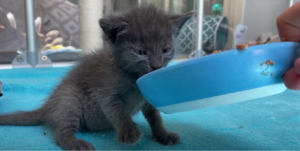
This usually happens because of allergies or sensitivities to certain foods, although sometimes it can be due to poor dental hygiene or even a sign of illness.
Another possible reason for-meal shaking is that your kitten may simply be trying to groom itself after eating. Cats are fastidious creatures who like to keep clean and tidy, and head shaking can be part of their grooming ritual.
Introduction of Solid Foods
If your kitten is a young one, its head shaking behaviour may be due to the introduction of solid food into its diet.
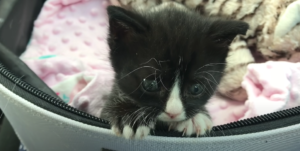
Kittens are born with an instinctive need to suckle on their mother’s milk, but as they grow older they’ll need to transition onto solids. This transition can cause some digestive discomfort and lead to post-eating head shaking. [2]
Difficulty Eating
If you notice your kitten shaking its head after eating, it could be due to difficulty in swallowing. This is particularly common for kittens who are learning how to eat on their own for the first time.
[1]Dental Disease
Poor dental hygiene can also be a cause of your kitten’s post-meal shaking. If its teeth and gums are in bad shape, the discomfort caused by eating could lead to head shaking behaviour.
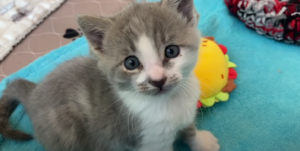
This is why it’s extremely important to look after your kitten’s oral health with regular check-ups at the vet and plenty of healthy chew toys to help keep its teeth clean.
Predatory Instincts
It’s possible that your kitten is shaking its head after eating out of sheer instinct. When cats in the wild catch their prey, they often shake their heads to help break down and swallow the food more easily.
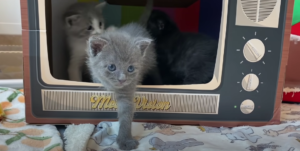
This behaviour may be ingrained deep in your kitten’s genes, so don’t be surprised if you see it doing it even when there’s no food around.
Enjoyment
It’s possible that your kitten is simply shaking its head after eating because it enjoys the sensation.
Head shaking can be a sign of pleasure or comfort for cats – something akin to purring in humans – so if you notice your kitten doing this frequently after meals then it’s probably just feeling contented!
Dissatisfaction
If your kitten is shaking its head after meals then it could be a sign of dissatisfaction with the food. If you’re feeding your feline friend commercial cat foods that contain lots of fillers and artificial ingredients, then this could be causing digestive discomfort.
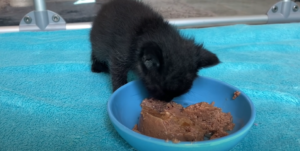
Try switching to higher quality wet or dry foods instead and see if this helps to reduce the post-meal head shaking.
Hypoglycemia
Head shaking after meals can be a sign of hypoglycemia in cats. Hypoglycemia is when the blood sugar levels drop too low and can lead to serious health problems if left untreated.
If you suspect that your kitten might have hypoglycemia then you should take it to the vet as soon as possible for a check-up.
Digestive Issues
It’s possible that your kitten is shaking its head after eating due to digestive issues. If your feline friend often regurgitates food or has difficulty going to the bathroom then it could be a sign of an underlying health problem. If this is the case then you should take it to the vet for a check-up and diagnosis.
Hypothermia
If your kitten is shaking its head after eating then it could be a sign of hypothermia. Cats are very sensitive to temperature changes and can easily become too cold if they don’t have enough insulation.
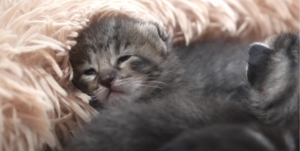
If the room that your kitten is in is draughty or particularly cold then this could be causing it to shake its head after meals. Make sure to keep your kitten warm enough and provide plenty of insulation.
Why Else Do Cats Shake Their Heads?
It could also mean that they’re feeling anxious or uncomfortable, so it’s always best to keep an eye on your cat’s behaviour and take it to the vet if you notice any changes.
Tips for Keeping Your Kitten Healthy After Eating
- Make sure your kitten’s food is fresh and of good quality – avoid feeds that are high in fillers or artificial ingredients.
- Ensure your kitten has access to plenty of clean, fresh drinking water at all times.
- Brush your kitten’s teeth regularly to prevent dental issues.
- Take your kitten for regular check-ups with a vet to monitor its health.
- Keep the temperature in the room comfortable and provide plenty of insulation if necessary.
- Provide lots of toys, scratching posts and windowsills for your feline friend to explore and play on.
FAQ
Why is my cat shaking after eating?
It could be a sign of pleasure or comfort, dissatisfaction with the food, hypoglycemia, digestive issues, hypothermia or hyperthermia. It is best to monitor your cat’s behaviour and take it to the vet if you notice any changes.
What should I do if my kitten is shaking after eating?
If you suspect that your kitten might have hypoglycemia then you should take it to the vet as soon as possible for a check-up. If the room that your kitten is in is draughty or particularly cold or hot then this could be causing it to shake its head after meals.
Make sure to keep your kitten warm enough and provide plenty of insulation. Additionally, make sure that your kitten’s food is fresh and of good quality, has access to plenty of clean, fresh drinking water at all times, and take it for regular check-ups with a vet to monitor its health.
Will head shaking after meals always indicate a problem?
No, head shaking after meals is not always indicative of a problem. It could simply be signifying pleasure or comfort.
However, if your feline friend often regurgitates food or has difficulty going to the bathroom then it could be a sign of an underlying health problem. In this case you should take it to the vet for a check-up.
Why is my kitten shaking after feeding?
It could be a sign of pleasure or comfort, dissatisfaction with the food, hypoglycemia, digestive issues, hypothermia or hyperthermia. It is best to monitor your cat’s behaviour and take it to the vet if you notice any changes.
Additionally, make sure that your kitten’s food is fresh and of good quality, has access to plenty of clean, fresh drinking water at all times, and take it for regular check-ups with a vet to monitor its health.
If the room that your kitten is in is draughty or particularly cold or hot then this could be causing it to shake its head after meals. Make sure to keep your kitten warm enough and provide plenty of insulation.
Do cats shake when they eat?
Yes, cats can shake when they eat. This could be a sign of pleasure or comfort, dissatisfaction with the food, hypoglycemia, digestive issues, hypothermia or hyperthermia.
It is important to keep an eye on your cat’s behaviour and take it to the vet if you notice any changes. Additionally, make sure that your kitten’s food is fresh and of good quality, has access to plenty of clean, fresh drinking water at all times, and take it for regular check-ups with a vet to monitor its health.
If the room that your kitten is in is draughty or particularly cold or hot then this could be causing it to shake its head after meals.
Are baby kittens supposed to shake?
No, baby kittens should not shake. If your kitten is shaking then it could be a sign of pleasure or comfort, dissatisfaction with the food, hypoglycemia, digestive issues, hypothermia or hyperthermia.
It is important to take it to the vet if you notice any changes. Additionally, make sure that your kitten’s food is fresh and of good quality, has access to plenty of clean, fresh drinking water at all times, and take it for regular check-ups with a vet to monitor its health.
If the room that your kitten is in is draughty or particularly cold or hot then this could be causing it to shake its head after meals.
How do you calm a shaking kitten?
First and foremost, take your kitten to the vet if you notice any changes in its behaviour. Additionally, make sure that your kitten’s food is fresh and of good quality, has access to plenty of clean, fresh drinking water at all times, and take it for regular check-ups with a vet to monitor its health.
If the room that your kitten is in is draughty or particularly cold or hot then this could be causing it to shake its head after meals. Make sure to keep your kitten warm enough and provide plenty of insulation. Additionally, you may want to try using a calming aid such as Feliway or Rescue Remedy, which can help ease stress and anxiety in cats.
What is the best food for a kitten that shakes after meals?
It is recommended to feed your kitten a high-quality, nutritionally balanced diet that specifically caters to kittens. Kitten-specific food should contain taurine, an essential amino acid found only in animal proteins, as well as other nutrients such as vitamins A, B and E, as well as omega-3 fatty acids. Additionally, make sure that your kitten’s food is fresh and of good quality, has access to plenty of clean, fresh drinking water at all times, and take it for regular check-ups with a vet to monitor its health.
If the room that your kitten is in is draughty or particularly cold or hot then this could be causing it to shake its head after meals. Make sure to keep your kitten warm enough and provide plenty of insulation.
Additionally, you may want to try using a calming aid such as Feliway or Rescue Remedy, which can help ease stress and anxiety in cats.
What health concerns can cause a kitten to shake after meals?
Health issues such as hypoglycemia, digestive issues, hypothermia or hyperthermia can cause a kitten to shake after meals. If you notice any changes in your cat’s behaviour then take it to the vet immediately.
Additionally, make sure that your kitten’s food is fresh and of good quality, has access to plenty of clean, fresh drinking water at all times, and take it for regular check-ups with a vet to monitor its health. If the room that your kitten is in is draughty or particularly cold or hot then this could be causing it to shake its head after meals.
Make sure to keep your kitten warm enough and provide plenty of insulation. Additionally, you may want to try using a calming aid such as Feliway or Rescue Remedy, which can help ease stress and anxiety in cats.
What ways can I increase my kitten’s comfort levels after meals?
Providing your kitten with a comfortable place to rest is important for its health and wellbeing. Make sure to keep your kitten warm enough and provide plenty of insulation.
Additionally, you may want to try using a calming aid such as Feliway or Rescue Remedy, which can help ease stress and anxiety in cats.
It is also important to make sure that your kitten’s food is fresh and of good quality, has access to plenty of clean, fresh drinking water at all times, and takes it for regular check-ups with a vet to monitor its health.
How often should I take my kitten to the vet?
It is important to take your kitten for regular check-ups at least once a year, or more often if recommended by your vet. Additionally, make sure that your kitten’s food is fresh and of good quality, has access to plenty of clean, fresh drinking water at all times, and take it for regular check-ups with a vet to monitor its health.
If the room that your kitten is in is draughty or particularly cold or hot then this could be causing it to shake its head after meals. Make sure to keep your kitten warm enough and provide plenty of insulation.
How can I prevent my kitten from shaking after meals?
Making sure that your kitten’s food is fresh and of good quality, has access to plenty of clean, fresh drinking water at all times, and takes it for regular check-ups with a vet to monitor its health should help prevent unhealthy shakes.
Additionally, make sure that the room that your kitten is in is not draughty or particularly cold or hot to ensure your kitten remains comfortable.
Furthermore, you may want to try using a calming aid such as Feliway or Rescue Remedy, which can help ease stress and anxiety in cats.
Finally, providing your kitten with a high-quality, nutritionally balanced diet specifically designed for kittens will help ensure that it has all of the nutrients it needs to stay healthy and happy.
How can I tell if my kitten is shaking due to a health issue or just out of excitement?
It can be difficult to distinguish between a shake caused by excitement and one caused by a health concern. If you notice that your kitten shakes after meals often, it is important to take it to the vet immediately.
Additionally, changes in behaviour such as lethargy or loss of appetite could be signs of a health issue, so if you notice any changes then take it to the vet for a check-up.
Why is it important to provide my kitten with a high-quality, nutritionally balanced diet?
Providing your kitten with a high-quality, nutritionally balanced diet specifically designed for kittens will ensure that it has all of the nutrients it needs to stay healthy and happy.
Additionally, making sure that your kitten’s food is fresh and of good quality, has access to plenty of clean, fresh drinking water at all times, and takes it for regular check-ups with a vet to monitor its health should help prevent unhealthy shakes.
Does my kitten need any special care if it shakes after meals?
If your kitten shakes after meals often, then it is important to take it to the vet immediately. Additionally, providing your kitten with a comfortable place to rest is important for its health and wellbeing.
Make sure to keep your kitten warm enough and provide plenty of insulation. You may also want to try using a calming aid such as Feliway or Rescue Remedy, which can help ease stress and anxiety in cats.
Finally, providing your kitten with a high-quality, nutritionally balanced diet specifically designed for kittens will help ensure that it has all of the nutrients it needs to stay healthy and happy.
Do cats shake their heads after eating due to anxiety?
It is possible that cats may shake their heads after eating due to anxiety. If your kitten shakes after meals often, then it is important to take it to the vet immediately. Additionally, providing your kitten with a comfortable place to rest is important for its health and wellbeing.
Make sure to keep your kitten warm enough and provide plenty of insulation. You may also want to try using a calming aid such as Feliway or Rescue Remedy, which can help ease stress and anxiety in cats.
Does my kitten need to see a vet if it shakes after meals?
If your kitten shakes after meals often, then it is important to take it to the vet immediately. Additionally, changes in behaviour such as lethargy or loss of appetite could be signs of a health issue and should be addressed by a vet.
Furthermore, regular check-ups with a vet to monitor its health should help prevent unhealthy shakes.
Finally, providing your kitten with a high-quality, nutritionally balanced diet specifically designed for kittens will help ensure that it has all of the nutrients it needs to stay healthy and happy.
Does my kitten need medication if it shakes after meals?
In some cases, your vet may prescribe medication for your kitten. Depending on the severity of their shaking and the underlying cause, they may recommend a variety of different medications or supplements that can help reduce their anxiety or other health issues.
It is important to remember that all medications should be discussed with a vet before being administered. Additionally, providing your kitten with a comfortable place to rest is important for its health and wellbeing.
Useful Video: Why Do Kittens TREMBLE? Is it normal?!
Conclusion
Overall, we hope this blog post has helped answer your question about why your kitten shakes after eating. While it may seem like a frightening experience, usually there is nothing to worry about and it could be normal for your kitten’s breed.
Rest assured that if you’re still concerned about the shaking, take your pet to a vet and get their opinion as soon as possible.
Remember that when it comes to our little furry friends, prevention is key! Ensure that whatever food your kitten eats is safe and nutritious to help them stay healthy – monitor their intake of certain substances such as sugar or additives, provide safe toys they can play with, and regular trips to the vet.
Taking these simple steps can help keep our beloved pets happy and healthy. Until next time – purr on!
References:
- https://mrbosscat.com/cats-shake-their-heads-when-eating/
- https://kittydevotees.com/2022/02/25/why-is-my-kitten-shaking-after-eating/

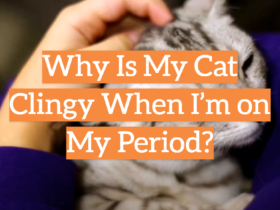
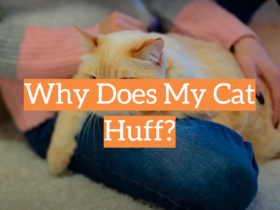
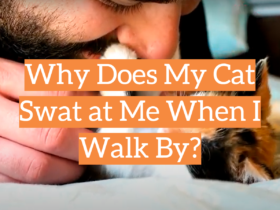
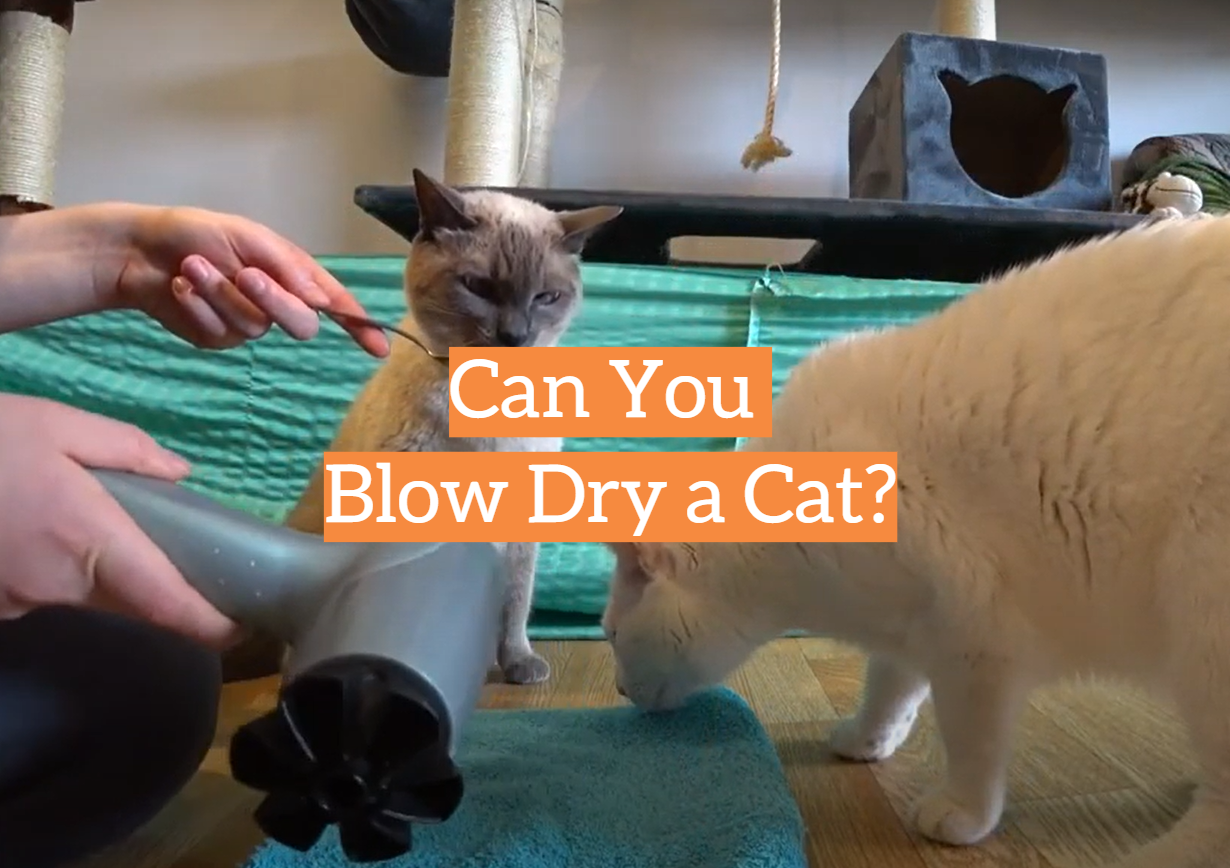
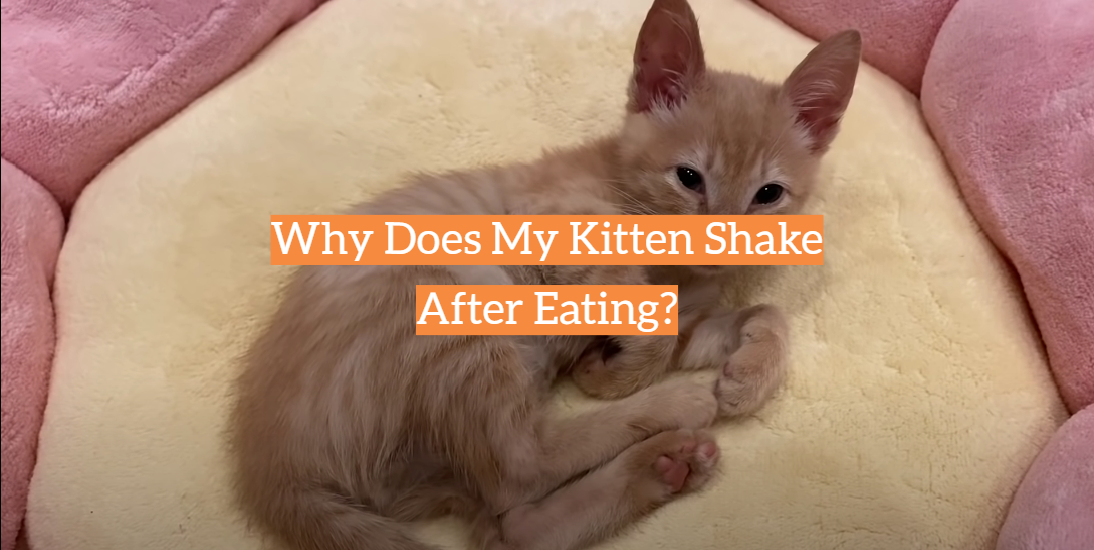
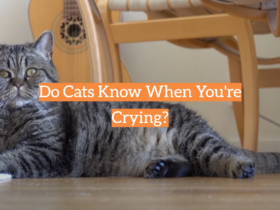
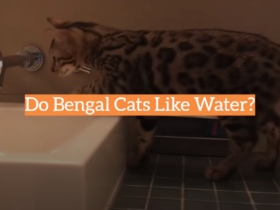
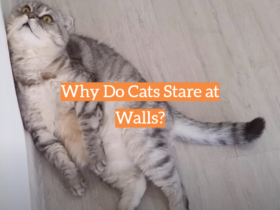
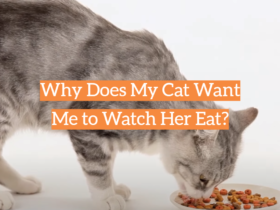
Leave a Reply